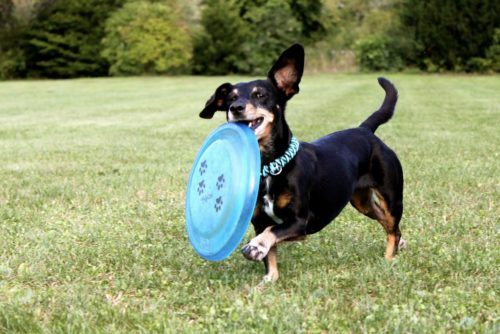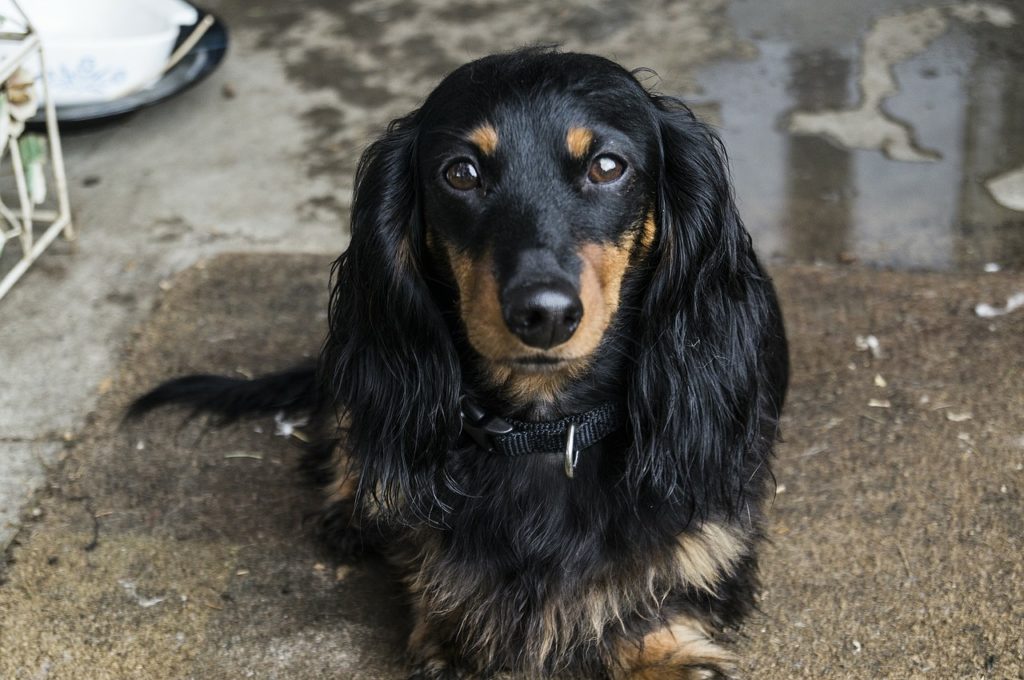Chances are you or someone you know has an allergy to dogs. It’s a very common condition; in fact, according to the American College of Allergy, Asthma, and Immunology, around 10% of the US population suffers some form of allergic reaction to dogs. Contrary to popular belief, it’s not the actual fur that people are allergic to.
It is the dander that is attached to the fur which causes a reaction. In certain cases, allergens can also be specific proteins found in the saliva. Being allergic to dogs can be tough because it may prevent you from visiting a friend or even getting a dog of your own, but there is a solution: hypoallergenic dogs.
Hypoallergenic Dog Breeds
From a scientific standpoint, the jury is still out on whether or not true hypoallergenic dog breeds actually exist. This is because the production of allergen proteins in dander and saliva vary widely from breed to breed, and given the amount of cross-breeding, it’s hard to be conclusive. However, despite exact scientific conclusiveness, some dog owners are adamant that their breeds are hypoallergenic and do not affect those with allergies.

It’s usually dogs who do not shed, or shed minimally, that are considered hypoallergenic. The truth is, they most likely still produce the allergen proteins on their fur.
But, because they don’t shed, the dander is not spread around the environment (i.e., on surfaces, clothes and in the air).
Allergen proteins in dogs vary greatly in how they affect people. Someone might be allergic to one dog and completely symptom-free around a different dog of the exact same dog breed.
If you are historically allergic to dogs, most doctors will advise against sharing your home with a furry friend. You may grow attached to a dog and have to endure a lifetime of runny noses and itchy eyes.
But, in the event that you find a specific dog who doesn’t seem to bother you, then you’re in luck. Keep in mind that there is always a chance your allergies could return or develop in time.
Dachshunds & Allergies
These adorably shaped little companions of German descent are known for their stout frame with long bodies and short legs. They’re also known for not shedding very much. Dachshunds have 3 different types of coats — short-haired, long-haired, and wire-haired.
Short-haired and wire-haired are known for producing the least amount of dander, and many Dachshund owners claim that they do not cause allergy symptoms. Their greatly reduced amount of shedding also makes household maintenance much easier. Another characteristic that’s on their side is their size. Dachshunds are small and therefore don’t produce the sheer volume of dander that a medium or large dog would.
Breed Variations
A popular and encouraged method of taking home a dog is through adoption. However, if you or someone in your home suffers from allergies, there’s no way to know for sure if a shelter dog is a purebred. For instance, if a Dachshund’s DNA is even slightly mixed, they may not share the same hypoallergenic properties as their purebred counterparts. To be sure, your best bet is working with a breeder or rescue groups who specialize in one specific breed.
Best Practices for Allergies
If you do decide to bring home a Dachshund or any other dog considered to be hypoallergenic, there are extra precautions you can take to avoid the effects of pet allergens.
- Purchase special pet dander and allergy air purifiers. Depending on your living situation, you may need multiple units in the home.
- Purchase a pet vacuum. These vacuums are specifically designed to absorb fine hairs and dander left behind by pets.
- Clean your living environment frequently. By keeping surfaces clean and sanitized, it will reduce the amount of dander that can enter your system.
- Frequently bathe your dog. There are anti-allergenic shampoos which can reduce harmful dander. It’s recommended to bathe your dog at least once a month.
- Consult an allergist about the many ways which you can combat pet allergens and co-exist with your furry little pal.

Some allergists may recommend leaving your dog to live outside. However, strictly living outside can cause psychological issues in most dogs, including Dachshunds.
Dogs are domesticated, and they are social creatures who love people. When they are isolated for most of the day away from their owners, they become frustrated, and their behavior can become very problematic (i.e., excessive barking, digging, destruction, biting, etc.)
Being allergic to dogs doesn’t mean you can’t one day own one. It’s just important to know what you’re getting yourself into and know how to create a comfortable living environment for both you and the dog.
Dachshunds are a great option because they’re small and produce less dander. However, if you’re ultra sensitive, be careful because Dachshunds are known to snuggle.
Sources:
- “Hypoallergenic Dog Breeds: Best Dogs for Allergies.” American Kennel Club, 14 Dec. 2017, Accessed 20 Dec 2017.www.akc.org/expert-advice/lifestyle/hypoallergenic-dog-breeds/.
- “Hypoallergenic Dog Breeds.” Petwave, Accessed 20 Dec 2017. www.petwave.com/Dogs/Breeds/Hypoallergenic.aspx.
- “10 Most Popular Hypoallergenic Dog Breeds.” IHeartDogs.com, 16 Aug. 2018, Accessed 20 Dec 2017. www.iheartdogs.com/10-most-popular-hypoallergenic-dog-breeds/.
- “Dachshund Dog Breed Information, Pictures, Characteristics & Facts.” Dogtime, Accessed 20 Dec 2017. www.dogtime.com/dog-breeds/dachshund.
- “Dachshund – Appearance & Grooming.” Petwave, 16 July 2015, Accessed 20 Dec 2017. www.petwave.com/Dogs/Breeds/Dachshund/Appearance.aspx.




